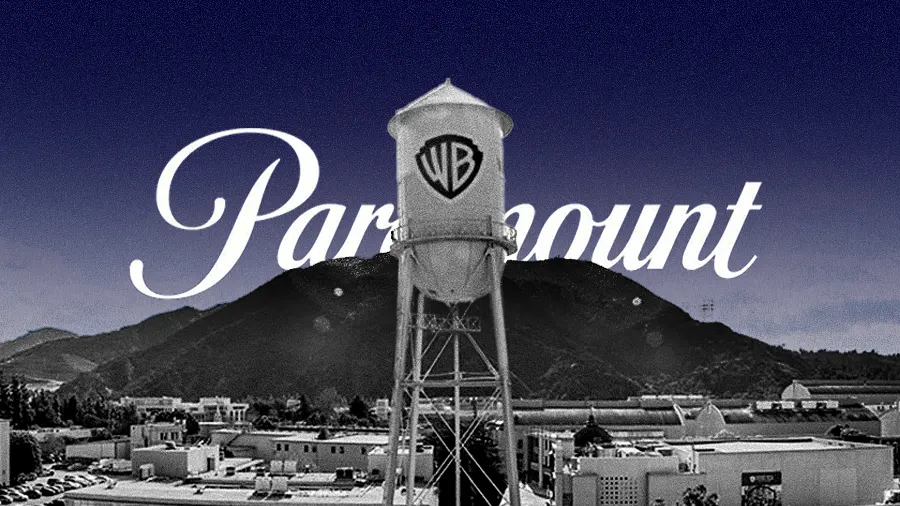A potential merger between Paramount Skydance and Warner Bros. Discovery has Hollywood buzzing, but for independent creators, it feels less like opportunity and more like another locked gate. Supporters frame the deal as a chance to build a media titan with a vast and valuable IP catalog to rival Netflix and Disney. Yet each round of consolidation tends to come with a hidden price: higher barriers to entry, slower greenlights, and fewer cracks in the wall where original voices can break through.
We spoke with Adi Tiwary, a Development Producer and IP Strategist with over 15 years of experience in the global content market, currently running a consultancy to help creators and studios develop ideas into market-ready IP. From his perspective, the merger’s biggest cost won't be found on a balance sheet.
"It's not great for indies and creators. It consolidates too much power in one hand," said Tiwary, warning that the consolidation would create a tactical problem for independents. "Indies, specifically, will need to start thinking early about how they diversify their windows, their release strategies, and how they reach the market."
- Pole vault pitches: Tiwary argued the most direct impact is felt at the ground level. "Consolidating power creates a bias, which means the bar keeps getting higher and decisions are slower," he explained. He noted this environment is exacerbated by a market where mega-deals for established players create unrealistic benchmarks that true independent creators cannot hope to meet.
- The algorithm economy: The reality, he argued, is forcing a fundamental change in the nature of creative work. The popular term "creator economy," he said, is a misnomer. "It is the algorithm economy we live in, where creators are programming for platforms rather than people. It becomes harder for independents to pitch."
The supposed allure of a larger global canvas for picked-up projects can come at the steep price of creative conformity, requiring creators to adhere to a studio’s rigid content mandate. The deal's complexity is deepened by its character as a uniquely modern, tech-centric play driven by David Ellison, whose reputation for aggressive dealmaking is well-known. The question is whether that leads to a stronger business or just a bigger mess.
- The empire strikes out?: Tiwary is deeply skeptical of the industry’s singular focus on scale as the primary path to competing with giants like Netflix, Disney, and even India’s JioStar. "Scale alone is not strategy. Execution will decide if this is empire building or empire straining," he asserted. He views the proposed move as reckless, citing a history of chaotic integrations that have crippled past mega-mergers, such as the AOL Time Warner debacle and the lengthy Disney-Fox deal.
- Bundle battles: Significant operational headwinds further complicate the picture, from Paramount and Skydance’s own recent merger to Warner Bros. Discovery’s ongoing struggle to integrate its streaming and studio arms. And the challenges don’t stop at home. Tiwary pointed to the APAC region as a prime example of global complexity. "A tech bundle war is brewing. It would definitely give them a lot more firepower in APAC," he explained, noting that pre-existing licensing and bundling deals with partners like Foxtel in Australia could become a serious logistical hurdle.
As for potential upsides for creators, Tiwary remained skeptical. He acknowledged, however, that the merger could spark innovation in areas like AI workflow or advanced ad tech.
- A bronze lining: "Perhaps if they decide to explore that micro-drama phase that Hollywood is going through, they might be better positioned to have a tech stack that lets creators go to the platform directly," he said, noting this would mean "access for advertising and for creators." To highlight the high bar for such success, he pointed to Amazon’s seamless integration of MX Player into its e-commerce app, a model of tech-first execution he doubts debt-heavy legacy studios could match.
"Look at how YouTube advertising provided creators with a secondary source of revenue," he added. "Maybe if they think of the poor creators like us, they'll build something similar with their very powerful tech stacks," he mused. "Perhaps good tools will come out. Honestly, that’s the only upside I can see for independents."
Even if Ellison's billions make the merger feasible, creators will likely feel the consequences long before investors do. The question is not necessarily whether Paramount and Warner Bros. Discovery can build a giant, but whether that giant leaves room for anyone else to create. "If the rumors are true and they're going for this, it's very bold. But it's reckless at the same time."

